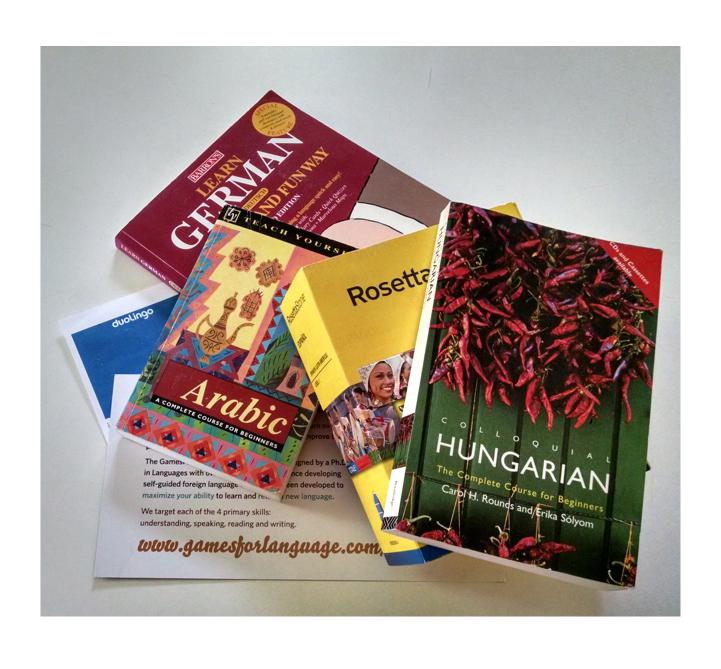More than ONE Approach to Learning a Foreign Language
 We are often asked whether you can learn and/or practice German, French, Italian etc. by just using our GamesforLanguage program. Our honest answer is no.
We are often asked whether you can learn and/or practice German, French, Italian etc. by just using our GamesforLanguage program. Our honest answer is no.
The same way one cannot learn a foreign language by just studying a text book, you shouldn't just use ONE approach or program to learn a new language.
How About Language “Immersion”?
In our opinion, language immersion is likely the most effective way to learn a foreign language rapidly. Ideally such “immersion” takes place in the country whose language you are learning, supported by personal tutors, classroom sessions, or self-teaching courses, books, audio/videos, etc. (And I don't mean "immersion" CD or online language courses!)
There are language immersion schools in the US and in many other countries. In the US, the Center of Applied Linguistics (CAL) provides a directory of foreign language immersion programs in US schools. Many colleges and universities operate study-abroad programs and/or summer immersion programs.
Adults who have the time (and money) will certainly benefit greatly from such immersion courses (abroad or in the US), especially, if they continue to learn, and practice reading, speaking, etc. afterwards.
Classroom Courses and Personal Tutors
Many adults who have taken classroom courses during their school years know that they never became fluent or proficient without additional work and practice. But for some adults classroom courses are a way to stay focused and motivated.
And, if they supplement their course learning with other materials, e.g. books, audios, online courses and/or apps, audios, videos, movies/TV, find a conversation partner, etc. they are sure to progress. Personal tutors can also accelerate your learning with individual attention as they can focus on your strengths and weaknesses.
Self-Teaching Books and Programs
Many self-teaching books (a popular one is the “Teach Yourself” series) have now been joined by CDs/DVDs, online courses and, increasingly, apps for Apple or Android mobile devices. The self-teaching programs have many advantages. In fact, we subscribe to LingQ's Steve Kaufmann's notion: “Nobody can teach you a language – You have to learn yourself.” -
- Cost - there are many entirely FREE language programs, including Duolingo, Gamesforlanguage; “Freemium” programs with a free base version and premium upgrades, such LingQ., RocketLanguages, etc.; and pricey programs such as Rosetta Stone, Fluenz, etc., to just name a few – however, all are likely to be less expensive than immersion programs or classroom courses and tutors.
- Flexibility – you can learn by fitting them into your work schedule or life style. This advantage works for highly motivated and disciplined learners, but flexibility can become a disadvantage when motivation fades.
- Focus on particular skills – Some learners want to improve a particular skill (e.g. reading, listening, writing, speaking) and you can find programs that focus just on one or more skills.
Exposure is Key
One reason immersion programs are quite effective can be explained by the amount of time a learner is exposed to the new language. Hours and days of hearing a new language, being challenged to remember new sounds, words, and phrases and, most importantly - to speak - all will impact both your short and long-term memory.
A weekly 1-2 hour class or online session gives you only a fraction of exposure time to a new language, when you compare this to an immersion course of several weeks. So, unless learners that use self-teaching programs can substantially increase their language practice/exposure time (often limited by work, family etc), they will have to accept a slower pace of learning.
Clearly there are approaches and programs that can accelerate your learning: They all require motivation, time, and money in varying amounts.
As we outlined in previous posts for Beginners and Non-Beginners, there are a number of steps you should take BEFORE and AFTER you start learning a foreign language. And, by all means, use several programs and/or approaches so learning remains fun, exciting, and motivating.
